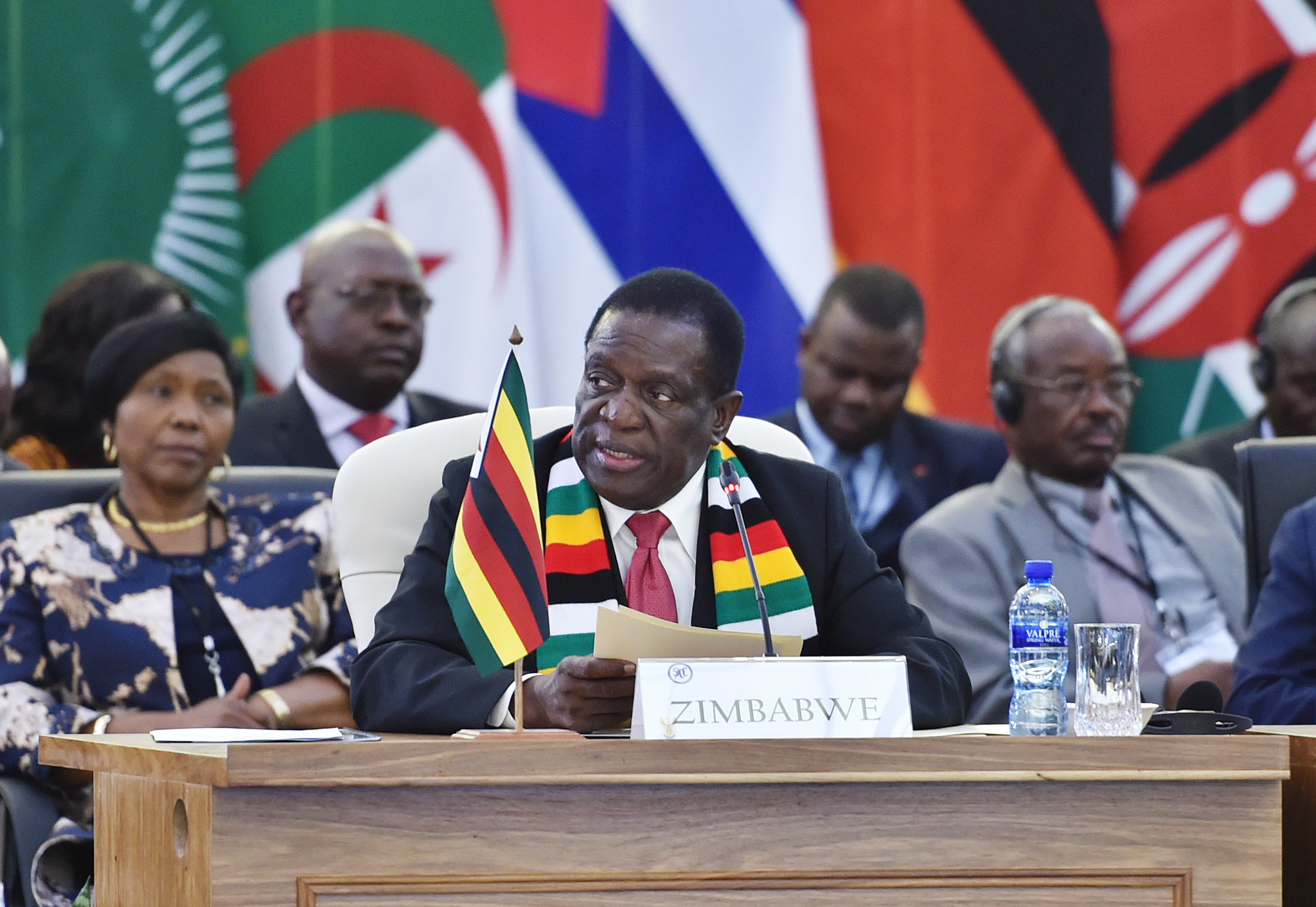News
The Malaysian Saga — It's the Political-Economy, Stupid!
The limits of economic competitiveness and growth sustainability are products of a political environment.

Director, The Brenthurst Foundation

Former Researcher, The Brenthurst Foundation

The lobby of Proton’s Shah Alam factory outside Kuala Lumpur centres on a colourful line-up of its models since the manufacturer’s inception. The slab-sided Saga, launched in 1985, quickly became Malaysia’s most popular car, selling more than a million units, helping Proton to gain a 55% share of the domestic market within its first decade.
But Proton’s early success offered false promise, illustrating just how difficult it is to start a national car project from scratch, the idea of then deputy prime minister Dr Mahathir Mohamad in 1979. The Asian financial crisis of 1997/8 saw domestic sales plummet to less than half of a 400,000 vehicle annual peak. Despite committing capital investment of $5 billion since 1983, the presence of tariff protection and government subsidies, and an early technology sharing agreement with Mitsubishi, the creation of a sustainably profitable business has proven elusive.
Today Proton’s domestic market share is around 11%, behind the second national manufacturer Perodua, essentially a re-badged Toyota, and Honda. Proton illustrates that success demands more than good ideas and intentions. It shows how economic diversification demands a fine balance between national imperatives such as training, upliftment, poverty alleviation, ownership, infrastructure development and wealth creation on the one hand, and international demands of capital, technology, and trade on the other. As the sub-title to this paper suggests, and to paraphrase the line popularised by Bill Clinton in his 1992 presidential campaign, it’s all about the choices intrinsic to the notion of a political economy – that is, the study of who gets what, when and how (the core questions of the discipline of politics) in the context of scarcity (the issues or patterns of production and distribution in the setting of scarcity, the key questions of the discipline of economics).
Put differently, domestic political economy and the sometimes limited choices it offers sets the boundaries for reform and growth.
The Importance of Governance
Anwar Ibrahim was, in the 1990s, Malaysia’s uber-successful and popular Minister of Finance, the man expected to take over from Mahathir as his deputy. Then came a spectacular fall from grace, Anwar being accused of corruption and sexual improprieties in 1998 by his boss, fired and later imprisoned.
Such are the vagaries of politics and necessity of broad support that by 2018, however, Anwar was back in favour. Mahathir made his surprising political comeback in the Pakatan Harapan coalition in the 2018 general election, becoming the first prime minister not to represent the Barisan Nasional. The plan appears that Mahathir will, in time, hand over to Anwar, whose People’s Justice Party was central to the 2018 election victory. In politics after all there are no permanent friends or enemies.
While in agreement that Malaysia’s growth story has a positive story to tell in terms of poverty alleviation and the value of pro-market policies, Anwar is deeply critical of costs of governance and ‘rampant corruption’ which he says has its roots in ‘poor leadership, weak institutions and human greed,’ noting that ‘a fish always rots from the head’.
The method of incumbent Prime Minister Najib Razak’s defeat may have been Mahathir’s return, but the cause was his involvement in the 1MDB (1Malaysia Development Berhad) scandal.
Billion Dollar Whale details the story of the Penang-born and Wharton educated entrepreneur Jho Low, orchestrator of one of the greatest heists in history. At the young age of 28, Low managed to convince Najib that he could use the 1MDB, a Malaysian sovereign wealth fund, as a financing vehicle by attracting major investments from the Middle East and other global markets. Goldman Sachs and other banks helped raise $10 billion, before half of this amount disappeared from the fund.
Low was labelled ‘Asia’s Great Gatsby’ for his extravagant parties, including one where Britney Spears allegedly jumped out of a giant birthday cake. The 300-foot super yacht which gave its name to the book and which was seized by the Malaysian government, was reported as sold in April 2019 for $126 million, the largest amount of money to date that the country has recovered from the $4.5 billion spent on 1MDB.
While Low has fled to China, allegedly, Najib was arrested in July 2018 by the Malaysian Anti-Corruption Commission, seizing 1,400 necklaces, 567 handbags, 423 watches, 2,200 rings, 1,600 brooches and 14 tiaras in a raid on his home. He faced 42 criminal charges, including 27 money laundering charges, nine for criminal breach of trust, five for abuse of power and one for audit tampering. Investigators allege that $1 billion found its way into his personal bank accounts.
While the scale of the 1MDB bling may have shocked, as Anwar indicates, this was far from the first corruption scandal, the roots of which lie in the nature of the political compact at independence. Malaysia suffered heavily in the Asian financial crisis in 1997/8 partly as a result of overborrowing by politically-connected individuals in unproductive assets, notably apartment buildings. The ratio of non-performing loans was estimated at 14.6% at the time of the start of the crisis against an OECD average of about 3.2%, while the ratio of bank lending to nominal GDP reached as high as 138.5%, hinting at the extent of over-lending, the ease of access to finance for some and the frailties of oversight.
Recovery, and Malaysia’s international stature, was not helped by Mahathir’s rants against international financiers, notably George Soros.
Institutions have, for a long period, been deliberately undermined in personal interests.
Heavily in debt by the time of the 1997 financial crisis, Anwar’s opposition to a state bailout of one of Mahathir’s son’s companies was reportedly ‘critical to his falling out with the premier’. Under Mahathir, unbridled personal authority came at the cost of institutional strength as the compliance of the judiciary was engineered and the Internal Security Act exercised to detain activists, religious figures, and political opponents, including Anwar. The problem it seems was less the capacity of growth of the Malaysian economy than the manner in which economic and institutional choices were shaped by politics – in essence, by the political economy, much of which was, in turn, shaped by Malaysia’s history.
The Pros and Cons of Social Redistribution
By independence in 1957, the arrangement between the Malaysian political and economic elites was to be popularly known as ‘the bargain’. In terms of the traditional, colonial division of roles, the economy was dominated by the Chinese, the Indians populated the civil service, and the Malays were largely engaged in subsistence agriculture on the kampongs or in menial jobs. Or as it was colloquially put: ‘The Mercedes-Benzes were owned by the Chinese, driven by the Indians and washed by the Malays.’
In the immediate post-independence order, there was a greater effort to share the spoils, but mostly among the elite. As a result, throughout the 1960s inequality increased, especially within the Malay group itself.
Following the race riots of 1969, the government accelerated the redistributive aspect of their growth strategy through Malay affirmative action. This became known as the Bumiputera (literally, ‘sons of the soil’) programme, incorporating quotas to raise the percentage ownership of Malays in the economy to a target of 30%.
Like South Africa’s Broad-Based Black Economic Empowerment (BBBEE) policy, the Bumiputera is an affirmative action programme operating in favour of a ‘politically dominant and economically disadvantaged’ ethnic majority.vi In Malaysia’s case the increase in the share of Malay economic wealth was ‘largely achieved by state buy-outs of foreign (mostly British) businesses,’ using petrodollars that became available with the development of Malaysia’s oilfields in the 1970s. There was no nationalisation of private assets, only redistribution in terms of new assets or expanded economic capacity.

When interviewed in 2007, Mahathir had an interesting view of his own legacy: ‘When I came into office, many Chinese saw me as an ‘ultra’ [Malay nationalist]. But I was able to convince them otherwise and to stay and work within Malaysia.’ His greatest failure? ‘Not being able to change the mindset of traditional Malays sufficiently to change their way of doing things and objectives in life.’
Other critics of the Bumiputera regime say that it has worsened governance by its focus on preferential contracts in the absence of strong institutions, and by political indifference and the creation of a strong sense of entitlement. Bumiputeras might have been a success in terms of education and skills training for disadvantage ethnic Malays, says Anwar, but it was ‘disastrous’ in its cronyism and corruption, which only enriched a few. ‘Unfortunately,’ he says, ‘this is the lesson South Africa has taken away.’
Few however question the validity of the Bumiputera concept. For it is realized that, in the words of one government official, you ‘can’t build a nation with 55% of the people unhappy.’ It also, adds another, ‘enabled the country to get over an inferiority complex created by colonialism and change their mindset.’
After the 20-year term envisaged by the NEP expired in 1990, the Malay share of corporate equity was estimated to have increased to one-fifth from almost nothing, though the Chinese share had also doubled to two-fifths. The elite bargain, or tycoon consensus, was doing better than ever. The benefits of the NEP are widely seen as not filtering down to all Malays, rather as benefitting a small, cronyist elite connected to the ruling UMNO, thus referred to as ‘UMNOputras’. While wealth disparities between ethnic groups have narrowed, the gaps have widened within these communities, especially the Malays.
Regardless, there is no consensus on what to do today with the Bumiputera policy. As one former top civil servant has summarised, ‘It has so many problems, and foments corruption, but when I see the conditions of poverty among indigenous Malay communities, I believe it has to be retained. But it does,’ he acknowledges, ‘create a culture of dependency, for politicians as much as citizens.’
Anwar says that ‘it is necessary, but should not be based on race, but rather need. It should,’ he says, ‘not enrich the few, the few billionaires, but rather should address the plight of the poor, whether Chinese, Indian or Malay.’ The misuse of 1MBD, which was intended as a development fund to invest in industries that could create jobs for all Malaysians, irrespective of ethnicity – hence the name ‘1Malaysia’ – illustrates the extent of this enrichment. There is a connection, says the manmost-likely, between politics and such economic outcomes. ‘We need to be clear,’ he states, ‘that democracy cannot just be a concert of the rich and the famous.’
Limits to growth
This raises a more profound point about the nature of the overarching political economy and the elite pact that gave rise to it. It may also help to explain why Malaysia has struggled to achieve its targeted high-income status, being stuck in a ‘middle-income trap’, and why the hoped-for productivity gains have not been achieved. Between 2010 and 2015, per capita GDP in Malaysia increased from $9,069 to $9,766, or by merely $700, in contrast with China, which increased per capita GDP from $4,516 to $7,925 over the same period. The ambitious target of 3.7% labour productivity growth between 2016 and 2020 remains out of reach as productivity growth reached just 2.2% in 2018.
The limits of economic competitiveness and growth sustainability are products of a political environment. In Malaysia’s case, until now, this same political environment which once assisted the country’s economic growth through stability is now preventing it from reaching its full potential.
This article was originally published on The Diplomatic Society.

